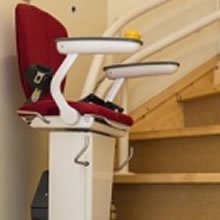
For many Americans, finding the right home is a long and arduous process. There are so many things to take into consideration, from the location to the price to the school district, and when you’re a senior or an individual who is living with a disability, making sure the home is accessible is one of the most important aspects of the hunt.
A truly accessible home is one that not only ensures safety, but allows you to move around freely in every room. This means a lack of stairs, doorways that are wide enough to permit a wheelchair, kitchens and bathrooms that have lower countertops, and showers that are step-in or have safety accessories such as grab-bars and seats. It’s also a good idea to think about the size of the lawn, since you may not want something too big that will be a burden to take care of.
Starting with a good plan is essential, so sit down and work out a budget with your spouse or partner before you begin the search. Read on for more tips on how to find the best house for your needs.
Do some research in your area
Finding the right home will take a bit of homework on your part. Start by researching accessible homes in your area; the location will likely be important, so begin in the neighborhood that most appeals to you and work your way out. Look at school districts, proximity to stores and hospitals, and traffic flow, and keep in mind that the average home price in Wheaton, Illinois is $350,000.
Make a list of your needs
It’s imperative to sit down and make a list of all your needs so you know exactly what to look for in a house and what might be a dealbreaker. If you have mobility issues, for instance, finding a home with no steps and an open floor plan might be important to you. Take a look at what works in your current home and what doesn’t; how could you improve on it? Take note that in some cases, if a house works in most ways but isn’t perfect, you might be able to make some modifications to it.
Set a budget
Starting with a budget is a good way to narrow down the field of choices. Not only will it help you figure out the absolute limit of how much you can spend, it will help you take into consideration what you might need to lay out for modification costs. There are many ways to find funding for a house, but if you have a disability or are a senior, you may qualify for grants or special loans. Look online to see what sort of programs your state offers.
Give yourself plenty of time
One of the most important aspects of house-hunting is to make sure you give yourself plenty of time to find the right place. It’s not an easy or short process, and if you put pressure on yourself to make a quick move, you’ll only be adding stress to the situation. Don’t rush to make a decision, and ask for help from a qualified real estate agent who has experience with finding accessible homes.
Finding the right home for your needs will allow you to stay safe and comfortable for years to come, so you’ll want to make sure it has everything you need before making a decision. Do some research on local contractors should you need to make modifications, and don’t be afraid to ask questions. With the right plan in place, you can find a home that meets all of your needs and then some.





